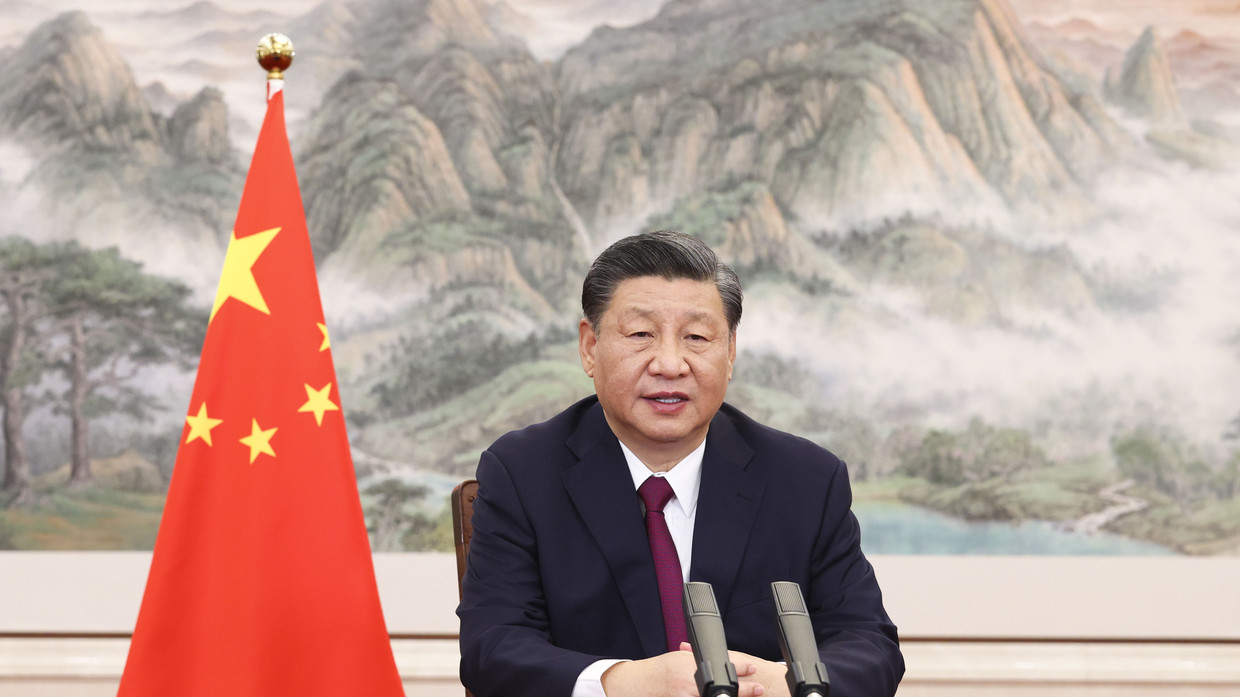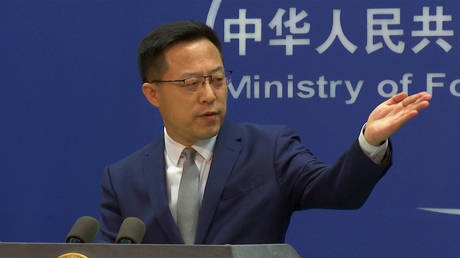International disputes should be resolved through dialogue and not by sanctions, Chinese President Xi Jinping said on Thursday, while presenting his country's new Global Security Initiative.
Speaking via videolink at the international forum in the province of Hainan amid the ongoing Ukrainian conflict, Xi chose not to comment on other specific international issues, highlighting instead his general vision of a global security framework.
“We, humanity, are living in an indivisible security community. It has been proven time and again that the Cold War mentality would only wreck the global peace framework, that hegemonism and power politics would only endanger world peace and that bloc confrontation would only exacerbate security challenges in the 21st century,” Xi said.
The Chinese leader underlined that international security is “indivisible” and therefore respect for the sovereignty and territorial integrity of all countries, non-interference in each other's internal affairs and cooperation for the sake of common peace and security should form the basis of the international security framework.
He announced that Beijing’s Global Security Initiative would be based on these core principles. Among other things, he said, it is important “to reject the Cold War mentality, oppose unilateralism, and say no to group politics and bloc confrontation; and stay committed to taking the legitimate security concerns of all countries seriously.”
The Chinese leader called on the international community to remain committed to “peacefully resolving differences and disputes between countries through dialogue,” and to “oppose the wanton use of unilateral sanctions and long-arm jurisdiction.”
These calls are apparently in line with the emphatically neutral stance of Beijing when it comes to the situation in Ukraine. From the first days of Russia’s military attack on the neighboring country, China called for a negotiated settlement to the conflict, underlining its support for both Ukraine's right to territorial integrity and Russia's legitimate security concerns. It rejected the Western countries' call to condemn Moscow's actions, refused to impose sanctions on Russia but at the same time made a point of not providing Moscow or Kiev with any military assistance. The Chinese Foreign Ministry's spokesman Zhao Lijian called such an approach “constructive” and stressed that it puts Beijing “on the right side of history.”
The US has criticized China for its neutrality on the Ukrainian issue and has even warned Beijing of “the implications and consequences” were it to decide to provide any material support for Russia.
Russia attacked the neighboring state in late February, following Ukraine's failure to implement the terms of the Minsk agreements, first signed in 2014, and Moscow's eventual recognition of the Donbass republics of Donetsk and Lugansk. The German and French brokered protocols were designed to give the breakaway regions special status within the Ukrainian state.
The Kremlin has since demanded that Ukraine officially declare itself a neutral country that will never join the US-led NATO military bloc. Kiev insists the Russian offensive was completely unprovoked and has denied claims it was planning to retake the two republics by force.


